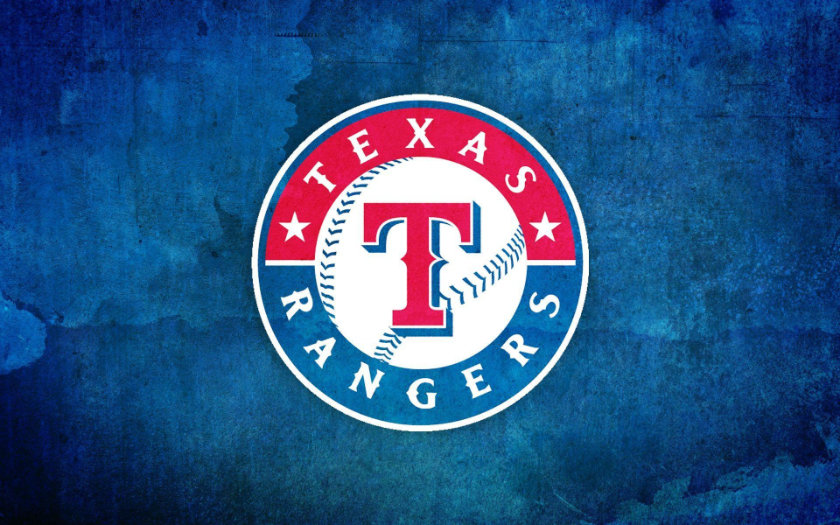Unveiling The Richest Teams In Baseball: A Deep Dive Into Wealth, Power, And Success
Baseball is more than just a sport; it's a business empire where money talks louder than ever before. The richest teams in baseball aren't just defined by their financial muscle but also by their ability to dominate the field. These organizations have built empires through smart investments, massive revenue streams, and strategic decision-making. If you're curious about how these teams have become powerhouses, you're in the right place.
Imagine walking into a room filled with the wealthiest baseball franchise owners. You'd hear stories of billion-dollar deals, state-of-the-art stadiums, and player salaries that make your jaw drop. But it's not just about the money; it's about how they use it to shape the future of the game. The richest teams in baseball are more than just numbers on a balance sheet; they're the driving force behind the evolution of the sport.
In this article, we'll take you on a journey through the world of baseball's elite. From examining their financial strategies to uncovering the secrets behind their success, we'll dive deep into what makes these teams stand out. So, buckle up because we're about to explore the financial powerhouse that defines modern baseball!
Read also:Was Willie Garson Ever Married A Heartfelt Look At The Late Stars Love Life
Table of Contents
- Introduction to the Richest Teams in Baseball
- A Brief History of Baseball's Financial Evolution
- Top 5 Richest Teams in Baseball
- Revenue Streams: How They Make the Money
- Understanding Market Value in Baseball
- The Role of Ownership in Building Wealth
- Player Salaries: A Reflection of Team Wealth
- The Impact of Stadiums on Team Wealth
- Challenges Faced by the Richest Teams
- The Future of Wealth in Baseball
Introduction to the Richest Teams in Baseball
Baseball has always been a game of numbers, but when it comes to the richest teams, those numbers get really big. These teams aren't just playing for fun; they're playing to win in a league where financial strength can make or break a franchise. The richest teams in baseball have built their empires over decades, leveraging everything from media rights to ticket sales. But what exactly makes them so wealthy?
Well, it all starts with smart management. These teams know how to invest their money wisely, whether it's in player development or infrastructure. They also have a knack for tapping into new revenue streams, like digital media and international markets. And let's not forget about the loyal fan base that keeps coming back for more. It's this combination of factors that sets them apart from the rest.
A Brief History of Baseball's Financial Evolution
Back in the day, baseball was more about passion than profit. But as the years went by, the game evolved into a multi-billion-dollar industry. The financial evolution of baseball can be traced back to the late 20th century when teams began to realize the potential of television deals. Fast forward to today, and you have teams generating revenue from a variety of sources, including merchandising, sponsorships, and even esports.
One of the key turning points came in the 1990s when the New York Yankees signed a groundbreaking TV deal with YES Network. This deal set the benchmark for what was possible in terms of media rights. Since then, other teams have followed suit, negotiating lucrative contracts that have significantly boosted their bottom lines. It's this kind of financial innovation that has allowed the richest teams in baseball to thrive.
Top 5 Richest Teams in Baseball
Let's cut to the chase and talk about the cream of the crop. The top 5 richest teams in baseball are nothing short of impressive. They've built their wealth through a combination of smart business decisions and on-field success. Here's a quick rundown:
- New York Yankees: With an estimated value of over $6 billion, the Yankees are the kings of baseball wealth.
- Los Angeles Dodgers: Coming in at a close second, the Dodgers boast a valuation of around $5 billion.
- Boston Red Sox: The Red Sox have a market value of approximately $4.5 billion, making them one of the most valuable franchises in sports.
- Chicago Cubs: The Cubs have capitalized on their historic stadium, Wrigley Field, to build a fortune worth around $4 billion.
- San Francisco Giants: Rounding out the top 5, the Giants have a valuation of about $3.8 billion.
Revenue Streams: How They Make the Money
So, how exactly do these teams make all that cash? It's a combination of several revenue streams that work together to create a financial juggernaut. Here are some of the key ways the richest teams in baseball generate income:
Read also:Pat Boones Family Legacy Lessons Love And Lasting Impact
- Media Rights: Television and streaming deals are a major source of revenue for these teams. The Yankees' YES Network, for example, generates hundreds of millions in annual revenue.
- Ticket Sales: With state-of-the-art stadiums and passionate fan bases, ticket sales remain a significant revenue stream.
- Merchandising: From jerseys to caps, fans love to show their support by purchasing team gear.
- Sponsorships: Major corporations pay big bucks to associate their brands with these prestigious teams.
- International Expansion: Teams are increasingly looking to tap into global markets, expanding their fan base and revenue opportunities.
Understanding Market Value in Baseball
Market value in baseball is more than just a number; it's a reflection of a team's overall health and potential. The richest teams in baseball have a market value that far exceeds their peers, thanks to their ability to generate revenue and sustain profitability. But what goes into calculating a team's market value?
It's a complex process that involves analyzing a variety of factors, including revenue streams, expenses, and growth potential. Teams with strong brands, successful histories, and strategic locations tend to have higher market values. For example, the New York Yankees' market value is boosted by their iconic status and massive fan base. Meanwhile, teams in smaller markets face challenges in building similar levels of wealth.
The Role of Ownership in Building Wealth
Behind every successful team is a savvy ownership group. The richest teams in baseball are no exception. Ownership plays a crucial role in shaping a team's financial future by making key decisions about investments, partnerships, and strategic direction. Take the Dodgers, for instance, whose ownership group has been instrumental in transforming the team into a financial powerhouse.
Ownership also influences how a team spends its money. Some owners are willing to splash the cash on star players, while others focus on building a strong farm system. The most successful teams strike a balance between these approaches, ensuring long-term sustainability and competitiveness.
Player Salaries: A Reflection of Team Wealth
One of the most visible signs of a team's wealth is the salaries they pay their players. The richest teams in baseball have the luxury of signing top-tier talent, often paying them salaries that would make most people's heads spin. But why do they spend so much on player salaries?
It's simple: talent wins games, and winning games drives revenue. Teams that invest in star players tend to perform better on the field, attracting more fans and generating higher revenue. However, this approach comes with risks, as high salaries can strain a team's budget if not managed carefully. The key is finding the right balance between spending on players and investing in other areas of the business.
The Impact of Stadiums on Team Wealth
Stadiums are more than just places where games are played; they're crucial to a team's financial success. The richest teams in baseball often have state-of-the-art stadiums that provide a world-class experience for fans. These venues are designed to maximize revenue through ticket sales, concessions, and premium seating options.
Take Wrigley Field, for example. The historic stadium of the Chicago Cubs has been renovated to include modern amenities while maintaining its classic charm. This transformation has helped boost the Cubs' revenue and enhance their market value. Similarly, the Dodgers' Dodger Stadium and the Yankees' Yankee Stadium have become iconic landmarks that contribute significantly to their teams' wealth.
Challenges Faced by the Richest Teams
Despite their wealth, the richest teams in baseball face unique challenges. One of the biggest challenges is managing expectations. Fans of these teams expect nothing less than excellence, and failure to deliver can lead to backlash. Additionally, these teams must navigate the delicate balance between maximizing profits and maintaining a competitive edge.
Another challenge is staying relevant in an ever-changing market. As new technologies and trends emerge, teams must adapt to remain competitive. This requires constant innovation and investment in areas like digital media and fan engagement. Failure to do so could result in a decline in revenue and market value.
The Future of Wealth in Baseball
The future of wealth in baseball looks bright, with teams continuing to explore new avenues for growth. As the sport becomes more global, there will be opportunities to expand fan bases and revenue streams. Teams will also need to focus on sustainability, ensuring that their financial success doesn't come at the expense of the environment or community.
Innovation will play a key role in shaping the future of baseball wealth. From virtual reality experiences to data-driven player development, the possibilities are endless. The richest teams in baseball will be at the forefront of this evolution, setting the standard for others to follow. As the game continues to grow, so too will the financial power of its elite franchises.
Conclusion
The world of baseball is a fascinating blend of sport and business, where the richest teams set the pace for success. From their impressive market values to their innovative revenue streams, these teams have built empires that inspire awe. But it's not just about the money; it's about how they use it to enhance the game and engage fans.
As we've explored in this article, the richest teams in baseball are defined by their financial acumen, strategic vision, and passion for the sport. Whether you're a die-hard fan or just curious about the business side of baseball, there's no denying the impact these teams have on the game. So, the next time you watch a game, remember that there's more than meets the eye – there's a financial empire behind every pitch, swing, and cheer.
Now it's your turn! Share your thoughts in the comments below or check out our other articles to learn more about the world of sports and business. Let's keep the conversation going and celebrate the incredible journey of baseball's financial giants!
Article Recommendations


